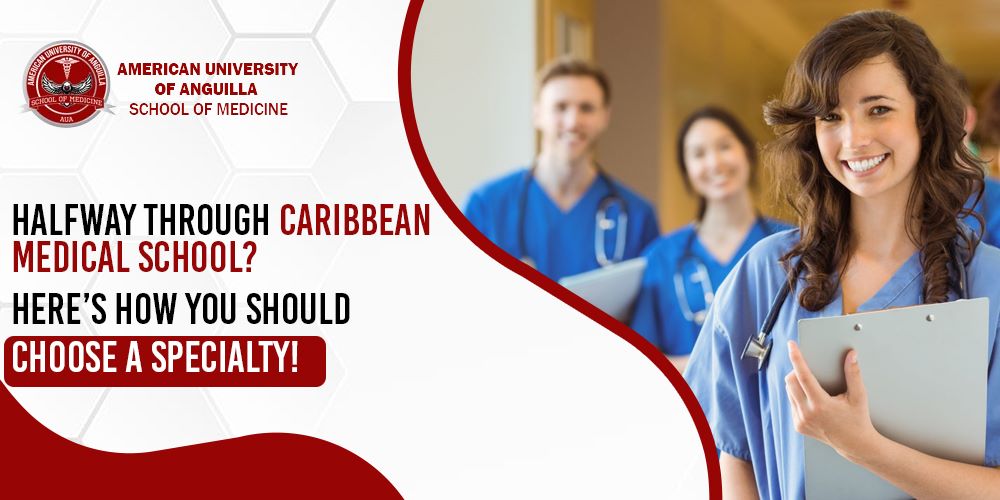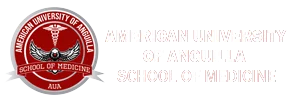

Blogs
Halfway Through Caribbean Medical School? Here’s How You Should Choose A Specialty!
You’ll be tasked to think about choosing a specialty at the start of your third or fourth year of Caribbean medical school. Or you can do it beforehand if you’re extra vigilant and determined to ace yourself via extra community work and internships in an area of medicine that interests you.
Unless you've always dreamt of taking care of expecting or aspiring mothers as an obstetrician-gynecologist or performing groundbreaking heart surgeries as a cardiologist, you've got some decision-making to do. As you cross 50% of your Caribbean medical school journey, you need to choose a specialty.
Choose carefully and smartly, as this decision is one that will impact your future. It’s very, very hard to change your specialty mid-residency, especially if you’re diverting to something that’s completely different from what you’ve been training for.
Lucky for you, we’ve compiled a list of factors you should consider to decide the best medical specialty for you. Let’s get started.
Personality & Social Capacity
How would you characterize yourself? A social butterfly or an introvert? Someone with an interest in staying within the lines or thinking and acting outside the box? Are you someone who joined the field of medicine to help the community or also to make new discoveries?
All these questions are relevant to your choice of specialty, as each specialty is different. For example, if you're great with kids and love little humans, you may be comfortable in pediatrics (if that's what you want to go for. However, if kids aren't your thing, then this field may be a super challenging one for you.
Another example is the capacity for handling emotions. Medical specialties such as oncology require a certain level of mental strength to communicate with people battling a life-threatening disease. Likewise, a general physician has to have a broad perspective to correctly diagnose a health issue and the patience to work with all kinds of patients.
Your personality, your way of being social, and your feelings all matter when you're choosing a specialty. You can also understand the skills to develop before Caribbean medical school is over.
Time Vs. Task Distinction
Are you time-oriented or task-oriented? You can figure this out during your time at Caribbean medical school.
If you're one for managing your time and staying on schedule, then clinical hours may be the best. For surgical specialties, you may have to throw your scheduling needs out the window. The nature of surgery is that it's unpredictable, whether you're an intern or the head of the department in a hospital. After all, you cannot leave the OR if your expected two-hour surgery takes 5 hours more and extends into your personal and social life.
Make sure you're ready to face the challenges of the specialty you choose. This way, you can develop the mindset to succeed.
Patient Interaction Capacity
One of the reasons to join Caribbean medical school is to experience harmonious living and interact with the community. During this time, you learn about your social capacity too.
Are you one for answering patient questions, hand-holding, and answering some more questions from the patient's relatives? If so, then being a physician or a surgeon may work out well for you.
However, if you find yourself nervous or uninterested in the idea of patient interaction and prefer sticking to communication with doctors and nurses, and administrative staff only, then make your way into pathology or radiology.
If you're keen to limit or avoid patient interaction, you can also step into scientific research by leaving clinical training till the obligatory level and going for your M.D. or doctorate. You can also take a slight sideways step into hospital management and administration.
Earning Potential & Financial Goals
You got into the field of medicine to serve the community, but you've also got bills to pay. The earning potential of a medical specialty matters, especially for those students who have taken extensive loans to finance their Caribbean medical school degree and have little to no financial support from family.
This is where you've got to make the hard decision: passion vs. income. If the medical specialty you're interested in pays in practice, then you're in luck. However, if there is an abundance of medical professionals in your medical specialty of interest (therefore, low demand), a low earning potential even with specialization, or you'll need extensive capital to start your own practice with not enough pay to breakeven for a long time—then opt for another specialty to save yourself financial stress.
Remember, the act of providing healthcare has rewards that go beyond financial gains. In some specialties, you will have to struggle for some time before you are able to earn well enough. Whatever specialty you choose, choose wisely.
Residency, Specialization & Fellowship Availability
This factor is one faced by most students studying outside the U.S. and the U.K. Studying in a Caribbean medical school may be possible if you have the financial resources and support. However, practicing medicine is another story.
If you’ve chosen a specialty for which your country does not have enough resources to provide you with the opportunity to become better, then you may not be able to specialize. For instance, most places in Europe have superb training programs and facilities for aspiring neurologists, but the same cannot be said for certain parts of Asia. While learning theory is made easy with the spread of information via the internet, practicing medicine requires presence.
So, when you choose a specialty, consider whether or not you will have to travel to learn and earn well. Also, look at where in the world you can opt for the best fellowships in the future for your chosen specialty—and whether or not you can make it to your destination.
The Verdict
Before choosing a medical specialty, gather all the information you can about it. You can also take help from your counselors. At the American University of Anguilla, we have mentors and counselors for our students to guide them through the specialty-choosing process—which is why we are one of the best Caribbean medical schools.
Visit us today and learn more.
